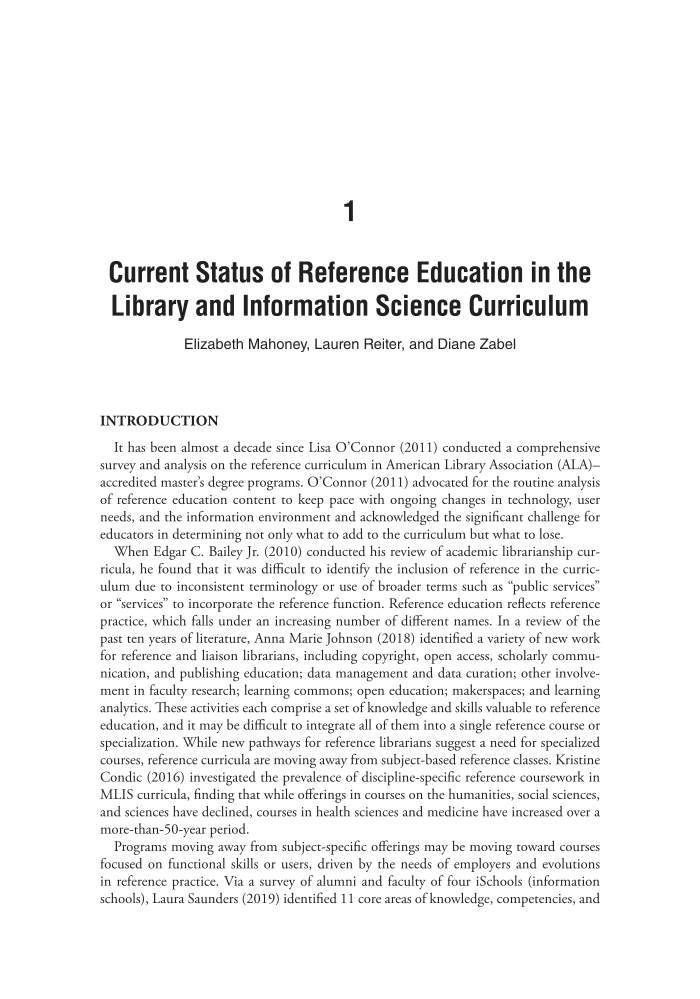1 Current Status of Reference Education in the Library and Information Science Curriculum Elizabeth Mahoney, Lauren Reiter, and Diane Zabel INTRODUCTION It has been almost a decade since Lisa O’Connor (2011) conducted a comprehensive survey and analysis on the reference curriculum in American Library Association (ALA)– accredited master’s degree programs. O’Connor (2011) advocated for the routine analysis of reference education content to keep pace with ongoing changes in technology, user needs, and the information environment and acknowledged the significant challenge for educators in determining not only what to add to the curriculum but what to lose. When Edgar C. Bailey Jr. (2010) conducted his review of academic librarianship cur- ricula, he found that it was difficult to identify the inclusion of reference in the curric- ulum due to inconsistent terminology or use of broader terms such as “public services” or “services” to incorporate the reference function. Reference education reflects reference practice, which falls under an increasing number of different names. In a review of the past ten years of literature, Anna Marie Johnson (2018) identified a variety of new work for reference and liaison librarians, including copyright, open access, scholarly commu- nication, and publishing education data management and data curation other involve- ment in faculty research learning commons open education makerspaces and learning analytics. These activities each comprise a set of knowledge and skills valuable to reference education, and it may be difficult to integrate all of them into a single reference course or specialization. While new pathways for reference librarians suggest a need for specialized courses, reference curricula are moving away from subject-based reference classes. Kristine Condic (2016) investigated the prevalence of discipline-specific reference coursework in MLIS curricula, finding that while offerings in courses on the humanities, social sciences, and sciences have declined, courses in health sciences and medicine have increased over a more-than-50-year period. Programs moving away from subject-specific offerings may be moving toward courses focused on functional skills or users, driven by the needs of employers and evolutions in reference practice. Via a survey of alumni and faculty of four iSchools (information schools), Laura Saunders (2019) identified 11 core areas of knowledge, competencies, and
Document Details My Account Print multiple pages
Print
You have printed 0 times in the last 24 hours.
Your print count will reset on at .
You may print 0 more time(s) before then.
You may print a maximum of 0 pages at a time.




















































































































































































































